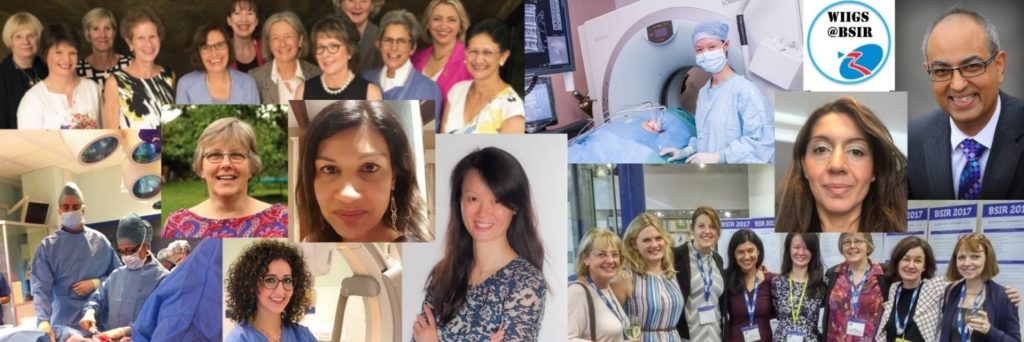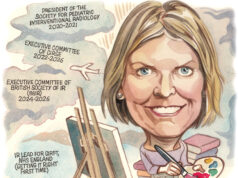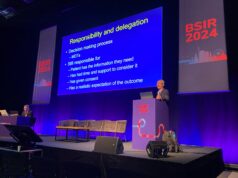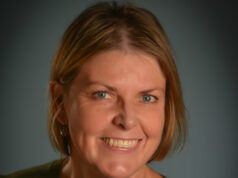
The British Society of Interventional Radiology (BSIR) established a Women and Diversity committee earlier this year, with the aim of overcoming obstacles to women and marginalised groups who are either already interventional radiologists or potentially will be in the future. The committee is discussing ways to encourage women to apply to the specialty, as well as how to make the work place as supportive as possible.
The first meeting of the committee resulted in 12 proposals for action being made, which are currently being prioritised and implemented. These included a plan to develop social media forums (WIIGS@BSIR) led by Elika Kashef (London, UK), and a baseline survey with metrics to monitor the progress of the committee’s work over time led by Ros Ahmed (Leicester, UK). The group also intends to work with potential interventional radiology recruits from school age through to radiology trainees.
In full, the 12 initial proposals are:
- Develop Women and Diversity social media forums (for example using WhatsApp and Twitter)
- Baseline survey of perceptions with metrics to monitor progress over time
- Develop a BSIR area blog / newsletter / online forum
- Work with Radiology trainees—encourage IR as an open specialty to all
- BSIRT [British Society of Interventional Radiology Trainees] survey to identify barriers to entering interventional radiology
- Attend / presence at meetings: Annual Scientific Meeting, Advanced Practice Course and Basics Course to access trainees.
- Inspire future trainees early—attend A level fairs and medical student careers fairs
- Support existing trainees—mentoring programme to include access / support for mentoring coaching
- Provide a roadshow at careers fares / BSIRT meetings. With specific attention to barriers—flexible training and pregnancy
- Promote leadership among interventional radiologists
- Promote resilience / work–life balance / coaching
- Produce a workshop for the Annual Scientific Meeting and IOUK [Interventional Oncology United Kingdom]
Speaking of the importance of this work, committee member Shilpi Pal (Dundee, UK) says, “The presence of visible female role models was felt useful as a means to inspire future recruits. There was felt to be a need to encourage women into leadership roles, and to provide support once these roles have been taken on.” With this in mind the group is in the process of setting up a travelling grant. Speaking about this Tze Wah (Leeds UK) says: “It is a great honour that Professor Anna Maria Belli has agreed to allow us to name the grant after her”.
There is a national shortage of trained diagnostic and interventional radiologists in the UK. While women currently make up 50% of junior doctors, just 10% of qualified interventional radiologists are female. This pattern also holds true across continental Europe and the USA.
The BSIR Women and Diversity committee aims to understand the causes of this discrepancy, and its mission statement is to find ways to “overcome the barriers” to potential female interventional radiologists. At the latest committee meeting, the most obvious barriers were felt to be issues around pregnancy and screening, fertility and screening, and access to flexible or part-time working.
“Definitions of diversity abound”, comments Fiona Miller (London UK). “I see diversity as empowering people by respecting and appreciating what makes them different, in any way, including age, gender, ethnicity, religion, disability, sexual orientation, education, and national origin. The main reward for accommodating diverse colleagues is a wealth of new ideas and approaches to our professional lives. A further benefit of working in a diverse peer group where individuality is respected is [a] better work–life balance for all.”
Elaborating on the decision to create the Women and Diversity committee, Miller explains: “In order to attract the best doctors, interventional radiology needs to be welcoming and inclusive to all. It was with this in mind that [the] BSIR council decided to create the Women and Diversity committee with time and resource[s] to focus on barriers to interventional radiology recruitment and retention. The precise remit will be determined by the elected group in discussion with council. At the first meeting, clear aims and objectives were defined, the primary aim being the promotion of equality for all in interventional radiology. The first project will be to address the challenges facing women in interventional radiology, followed by other issues including sexual orientation and gender identity, ethnicity and disability.”
In addition to Wah and Miller, the committee consists of three other elected members: chair Ros Ahmad (Leicester, UK), Shilpi Pal (Dundee, UK), and Elika Kashef (London, UK); Raman Uberoi (Oxford, UK) also “kindly agreed to be co-opted”, in Miller’s words. Any BSIR members who would like to be involved are encouraged to contact the committee directly.










